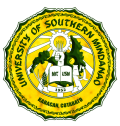For a while, I
have been asking myself what am I doing here? Is it the fulfillment of a
personal ambition? For some, I am lucky. It is rare for a simple guy like me to
go to US to attend a reputable engineering graduate school and, on top of that,
on a Fulbright Scholarship - known to be competitive and only a few have the
opportunity. But my eyes opened to the reality that schooling goes beyond the
usual professional development
Three months ago,
I could still remember how my wife shed tears while cuddling our one-year old
son as I board the bus that would carry me to Davao, to Manila, and to the US.
For two years, I will be not on their side. I could not witness the first words
of little Jones and the birth of our second child. But I comforted myself; this
is for their own good. And two years is not that long…
Within this short
period of time, I have observed enough why there is a certain type of
“greatness” in US universities. They are focused on research. It is a little
bit contrary to our system where we focused so much on coursework and often
question the legitimacy of research in engineering. Here, an academic program
won’t exist without research and extension activities. Their philosophy is that
students will be exposed on practical aspects of their profession if they do
research. They would discover things independently. Students would view a new
world of reality that is outside from what is written in a textbook. So the
saying goes, learning by doing.
Funding may be a
standing block to conduct research. But research does not necessarily mean big
programs that entail millions of pesos. Research can be term papers, laboratory
reports, and case studies. The only thing we miss is we sometimes (if not always)
failed to document what we have done on a day. It would be lucky enough if we
could see term papers done by students in 1970s. There is academic progression
where a current student can see what their predecessor have done and have
succeeded (or failed). In this way, they can look on the loopholes and try to
work on it and to come with new ideas to suppress whatever failure may have
been. So as the time goes on, we are evolving a relatively perfect science.
Meanwhile, I
notice the multidisciplinary approach to academic programs here. For example,
my concentration is environmental engineering. However, my world is not
confined in the biological and agricultural engineering department. Hopefully,
I will be working on waste management of recirculating aquaculture systems. In
this case, my adviser would readily admit that his expertise is in waste
management and not in aquaculture, hence, we employed an aquaculture expert in
the committee. Is it possible for USM to set aside its departmentalism and do the
multidisciplinary approach?
An example would
be: a student may try to develop a computerized stream gauging device with
sensors. It can be a group project comprising students from computer, civil and
agricultural engineering. The merit of this kind of approach, students will
learn to deal with persons from diverse backgrounds. This will enhance
camaraderie among students and would eliminate bitterness of students towards
another group of students. Students who would concentrate in crop processing
may deal with horticulture and food technology students to conduct a team
research. If a student would like to study the soundness and functionality of a
certain piggery house may collaborate with a civil engineering and an animal
science student. Will certain machinery
be economically viable for our farms? Then a student may pair with an AgEcon
stude.
I even look
forward for an Inter-university collaboration like that in Europe and here in
NC. I can enroll subjects in Duke University and University of North Carolina.
I can borrow books from other libraries in the US. Perhaps, this is still long way for us, but it is
not impossible. A MSAE program perhaps between USEP, MSU, and USM?
Perhaps, these are
the things that I have observed so far here in my short stint. My work here is
a mission. At any rate, I now realized that the government has spent millions
for my stay here. I should look further at US educational system and would try
to model but not necessarily copy.
But there is one thing I
have discovered which we may be proud of. Our students are far more
intellectually gifted than their counterparts here. We need only to drive our
students to achieve their highest potentials. Students, likewise, should
readily accept this challenge.
(Do you think this article is still relevant this time around? Share this to other USM constituents!)

No comments:
Post a Comment